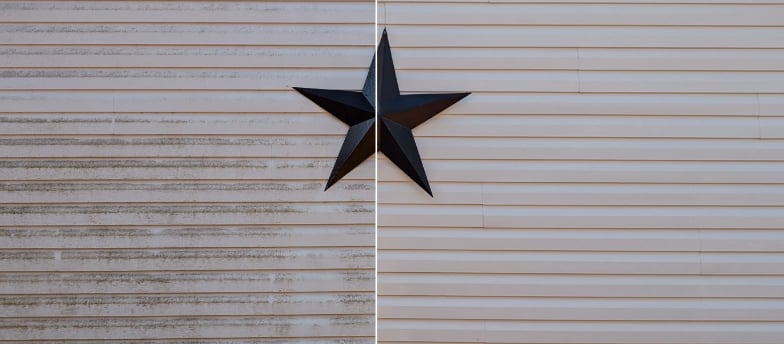DIY vs. Professional Pressure Washing: Which Is Right for You?
Pressure washing is an effective way to maintain your home’s exterior, driveways, and outdoor surfaces. However, when it comes to tackling this task, homeowners often face a crucial decision: should they rent or buy a pressure washer and do it themselves, or should they hire a professional? Both options have their advantages and drawbacks, so let’s break them down to help you determine which is right for you.
David Hahl
2/26/20252 min read


Pressure washing is a widely used method to clean exterior surfaces, remove dirt buildup, and maintain curb appeal. However, homeowners often face a decision: should they handle the task themselves or hire a professional? While DIY pressure washing may seem like a cost-effective and convenient option, there are several factors to consider, including safety, effectiveness, and potential risks. This guide compares DIY and professional pressure washing to help you determine the best approach for your needs.
Understanding the Basics of Pressure Washing
Pressure washers use high-pressure water to clean surfaces, but they are not a one-size-fits-all tool. Different surfaces require different pressure levels, nozzle types, and cleaning solutions. Improper use can lead to damage or ineffective results, making it important to understand the pros and cons of each approach.
The Case for DIY Pressure Washing
DIY pressure washing is appealing to many homeowners due to its perceived cost savings and convenience. However, it requires careful handling to avoid potential hazards.
Advantages:
Lower Initial Cost – Renting or purchasing a pressure washer can be more affordable than hiring a professional, especially for small jobs.
Convenience – Homeowners can pressure wash on their own schedule without needing to coordinate with a service provider.
Good for Light Cleaning – If the area being cleaned is small and requires minimal effort, a DIY approach can be sufficient.
Challenges and Risks:
Potential for Surface Damage – Using excessive pressure or the wrong nozzle can strip paint, etch concrete, or warp wood and vinyl siding.
Safety Concerns – High-pressure water can cause serious injuries, especially when used without proper precautions.
Time-Consuming – Without experience, DIY pressure washing can take longer than expected and may not produce professional-level results.
Limited Equipment and Solutions – Household pressure washers may lack the power and specialized detergents needed for certain cleaning tasks.
The Case for Professional Pressure Washing
Hiring a professional pressure washing service can provide a more efficient and thorough cleaning, particularly for large or delicate areas.
Advantages:
Proper Equipment and Techniques – Professionals use high-quality machines and the correct pressure settings for different surfaces, reducing the risk of damage.
Efficient and Time-Saving – A trained crew can complete the job quickly and effectively, often with better results than a DIY approach.
Safer for the Home and Occupants – Professionals understand safety protocols, minimizing risks of injury or property damage.
Better Cleaning Solutions – Many professionals use commercial-grade detergents and soft washing techniques to safely remove mold, mildew, and stains.
Considerations:
Higher Upfront Cost – Professional services require an investment, but the quality and safety benefits may outweigh the expense.
Scheduling Required – Homeowners must plan around the availability of service providers, which may not always be immediate.
Making the Right Choice
Deciding between DIY and professional pressure washing depends on several factors:
Surface Type – Delicate surfaces, such as wooden decks, roofs, and painted areas, benefit from professional handling.
Project Size – Large-scale cleaning projects may require more powerful equipment and expertise.
Experience and Comfort Level – If you’re unfamiliar with pressure washing techniques, hiring a professional reduces the risk of costly mistakes.
Time and Effort – Consider whether the time saved by hiring a professional outweighs the DIY cost savings.
Conclusion
Both DIY and professional pressure washing have their advantages and challenges. While DIY can be a good option for small, simple tasks, professional services ensure a thorough, safe, and efficient clean, particularly for larger or more delicate surfaces. By assessing the project scope, surface materials, and potential risks, homeowners can make an informed decision that best suits their needs.
